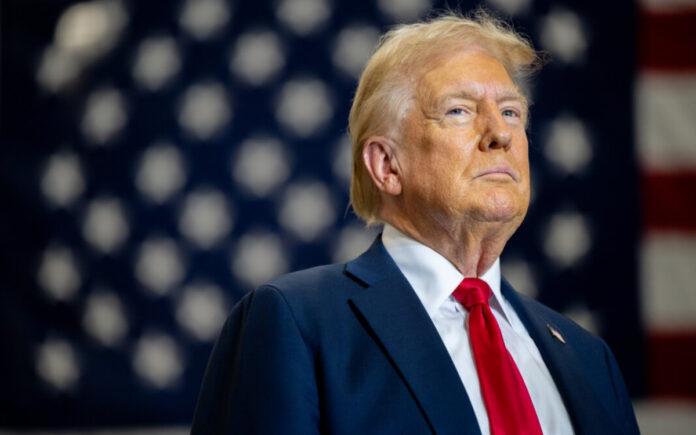Washington: U.S. President-elect Donald Trump will not face jail time, financial penalties, or probation for his criminal conviction related to hush money payments to a porn star. However, the sentence handed down by Justice Juan Merchan on Friday marks a significant judgment of guilt on his record.
Justice Merchan’s decision to impose an unconditional discharge ensures that while Trump, 78, avoids further legal penalties, his criminal conviction is permanently recorded. This ruling comes mere days before his January 20 inauguration, making Trump the first U.S. president to assume office with a criminal conviction.
Merchan clarified that the U.S. Constitution shields sitting presidents from prosecution, yet emphasized that such protections do not diminish the gravity of a crime.
“Despite the extraordinary breadth of those protections, one power they do not provide is the power to erase jury verdicts,” Merchan stated.
Trump’s Reaction and Legal Strategy
Trump, who has pleaded not guilty and vowed to appeal, appeared via video with two American flags behind him. Wearing a red tie with white stripes, he dismissed the charges as a “political witch hunt” intended to tarnish his reputation.
“It was done to damage my reputation so I would lose the election, and obviously that didn’t work,” Trump declared. “I’m totally innocent; I did nothing wrong.”
Having been sentenced, Trump is now free to pursue an appeal, a process that could extend for years, potentially overlapping with his upcoming four-year presidential term.
Trump had fiercely resisted appearing before a state-level judge so close to his inauguration. The U.S. Supreme Court rejected his last-minute attempt to delay sentencing, solidifying this historic moment as the first criminal case against a sitting or former U.S. president to reach such a conclusion.
Background of the Hush Money Case
The case stems from Manhattan District Attorney Alvin Bragg’s charges in March 2023. Bragg, a Democrat, accused Trump of falsifying 34 business records to conceal a $130,000 payment by his former lawyer, Michael Cohen, to adult film actress Stormy Daniels. The payment allegedly silenced Daniels regarding a sexual encounter with Trump, which he denies.
Trump, a Republican, defeated Democrat Hillary Clinton in the 2016 presidential election, during which the payment occurred. A Manhattan jury found Trump guilty on all counts in May 2023, with prosecutors arguing the scheme sought to corrupt the electoral process.
While critics viewed the conviction as evidence of Trump’s unfitness for office, Trump framed it as an attack by political adversaries aiming to derail his campaign. Despite his legal battles, Trump’s campaign contributions surged post-indictment, reinforcing his dominance in the Republican primaries.
Also Read | Russia Backs Trump’s Efforts for Peace Talks, Eyes Post-Inauguration Meeting
Broader Legal and Political Implications
The hush money case is considered less severe compared to other criminal cases Trump faces. These include allegations of attempting to overturn the 2020 election and retaining classified documents after leaving the White House. Trump pleaded not guilty in all cases, but only Bragg’s case reached trial.
Other prosecutions stalled due to legal barriers. Federal prosecutors halted two cases citing Justice Department policy against prosecuting sitting presidents, while a Georgia case related to 2020 election interference remains in limbo following the disqualification of its lead prosecutor.
Politically, the hush money trial delivered mixed outcomes. While Trump’s base rallied behind him after his indictment, polling indicated broader voter concern over the charges. Following the guilty verdict, Trump’s standing among Republicans temporarily dipped. However, the case faded from public focus, particularly after President Joe Biden withdrew from reelection following a poor debate performance, leaving Vice President Kamala Harris to lead the Democratic ticket.
Sentencing and Final Judgment
Falsification of business records carries a maximum sentence of four years in prison. While legal experts speculated that Trump’s age and clean criminal history made incarceration unlikely, his repeated violations of gag orders introduced some uncertainty.
Nonetheless, Trump’s electoral victory and impending inauguration made a custodial sentence or probation impractical. Justice Merchan, mindful of maintaining judicial impartiality, postponed the sentencing multiple times at Trump’s request, ultimately delivering the ruling after the election.
By imposing an unconditional discharge, Merchan struck a balance between enforcing the rule of law and acknowledging the unique political circumstances surrounding the case.



